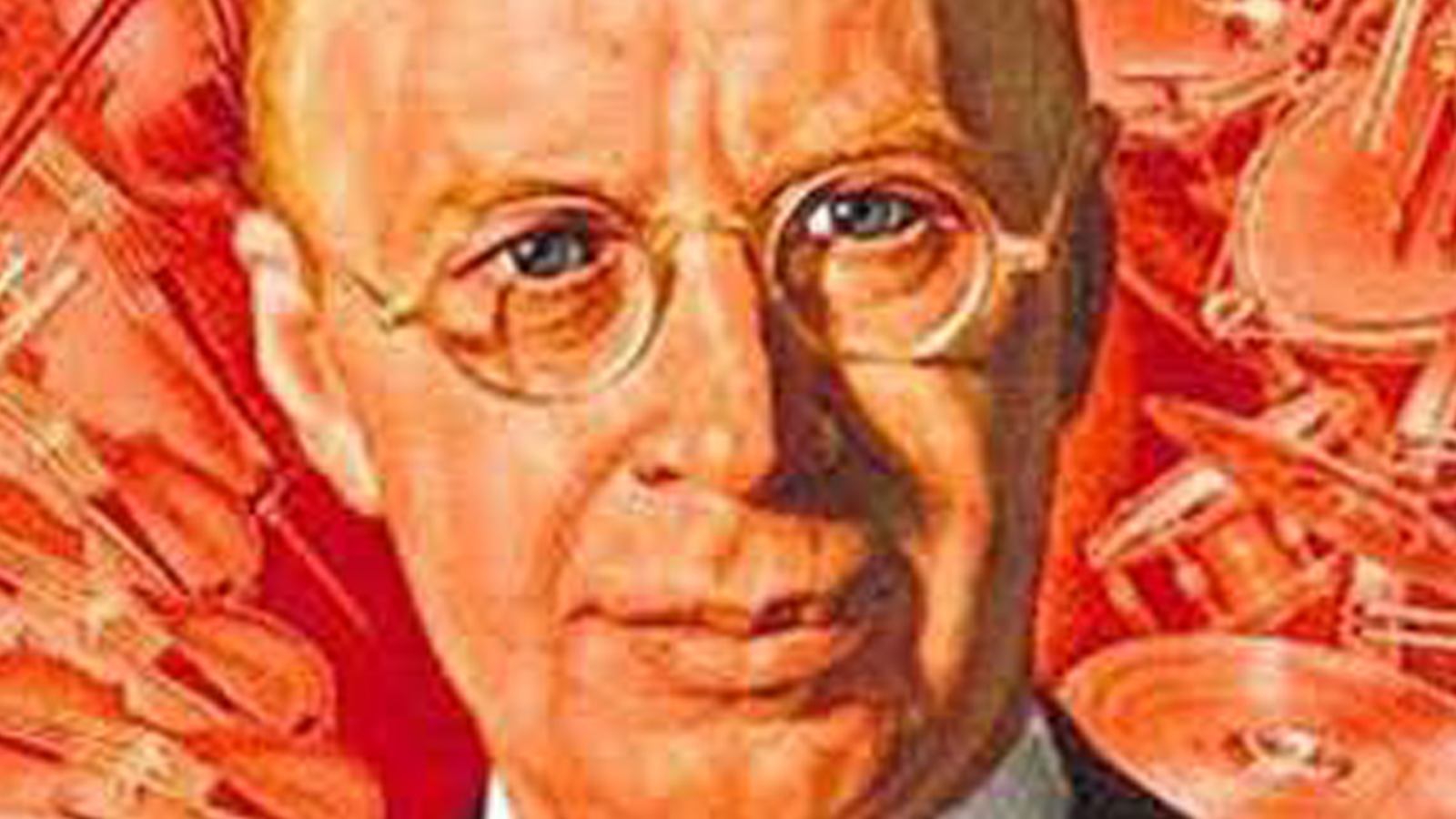
No. 29
Prokofiev: Romeo and Juliet

Prokofiev’s ballet Romeo and Juliet was the last great romantic ballet, bringing to a conclusion the second period of remarkable musical innovation spurred by ballet. At the turn of the 20th century, from 1900 through 1940, ballet introduced audiences to the “modern” in music. Ballet stages became centers of experiment. Prokofiev’s Romeo and Juliet brings this remarkable period of innovation to a close just as Stravinsky’s Firebird started it. Even Prokofiev’s Cinderella, as beautiful as it is, has a kind of musical nostalgia built into it; the ghost of Tchaikovsky hovers nearby. But the music for Romeo and Juliet is unfailingly fresh, whether tenderly lyric, ebullient and racy or brash and violent.
Sergei Prokofiev, after writing a number of trenchantly modern, sarcastic, satiric ballets for Sergei Diaghilev and The Ballet Russe began to be homesick. He had been living a life as a travelling piano virtuoso and composer for hire, rootless and lonely, and he felt that he needed to renew his creative batteries inside his homeland. Unfortunately, Russia was no longer “Mother Russia” but “Uncle Joe” Stalin’s Soviet Union. Starting in the early thirties, Prokofiev, as the greatest living Russian composer (second only to Igor Stravinsky, who like Rachmaninoff was lost forever to the West) was someone the Communist regime desperately wanted to reside and work in Russia. So, for most of the Thirties Prokofiev was granted a kind of special person status inside the Soviet Union. His musical projects, however, were not protected. Returning to Russia, Prokofiev was immediately asked by the Director of the Kirov Ballet in St. Petersburg, renamed Leningrad, if he wouldn’t write a ballet on Shakespeare’s Romeo and Juliet. Prokofiev assented. He began to write a score immediately. However, when it came time to begin staging the ballet at the Kirov, Prokofiev found that a big apotheosis to end the ballet would require that the doomed lovers remain alive. He took some time to diligently write such an ending only to find out that because of that ending, (most likely merely a bureaucratic excuse) the Director of the Kirov was fired and the ballet rejected. After another year, when it looked like Prokofiev might be leaving Russia, Moscow’s Bolshoi ballet took up the ballet. The only stipulation was that Prokofiev now write a tragic ending to the ballet. He did so. Then suddenly, after the premiere of Shostakovich’s opera The Lady Macbeth of Mtsensk, an editorial appeared in Pravda, the official mouthpiece of the Communist oligarchy. The editorial attacked “modernism” in music. Everyone knew that the two composers most threatened by this outburst were Shostakovich and Prokofiev. The Bolshoi cancelled the ballet.
Prokofiev’s world-wide reputation saved him and Romeo and Juliet. While Soviet authorities were dithering about staging Romeo and Juliet, Prokofiev, frustrated, created two Orchestral Suites from the music he had written for the ballet which were immediately published outside the Soviet Union. The Suites made an impact around the world. Soon Prokofiev was asked by a ballet company in Czechoslovakia if it could stage the full ballet. Prokofiev didn't hesitate, while still negotiating with the Soviet authorities, he was in correspondence with the company which in 1938 managed to stage the world premiere of Prokofiev's Romeo and Juliet. Prokofiev, however, could not attend. The Soviets had restricted his travel after they realized his music had already escaped. Given the Czech premiere they realized they were now compelled to mount an official Soviet premiere. The Bolshoi undertook the ballet in 1940.
Ever after, the popularity of the ballet score has been based on the suites, which quickly became staples of the concert repertory. The suites have been influential in creating a new musical mix for the 20th century, melding modernist tendencies, romantic sentiment and tonal traditions. The Suites have proved especially inspiring to composers of film scores. The music of Bernard Hermann is just one example of the lessons that many film composers learned from Prokofiev's music. The full ballet requiring a huge cast, an even bigger orchestra and copyrights still to be paid is too expensive to mount for most ballet companies. But it must be admitted that the full score and the ballet itself do add up to more than the sum of its parts. Placed alongside War and Peace, Prokofiev’s greatest opera, Romeo and Juliet is Prokofiev’s finest masterpiece.
Top 40 Countdown
A few years ago the listeners to WNED Classical told us what they thought a TOP 40 list of Classical pieces should be. Six hundred and twenty-two different pieces were put forward, and over nine hundred listeners participated. The result, The WNED Classical Top 40, was both startling and comforting. There were a number of surprises, Stravinsky and Copland made the list; Mendelssohn and Schumann did not! It was comforting to know that the two most popular composers were Beethoven and J.S. Bach. The biggest surprise of all was the piece that crowned the list as No. 1.